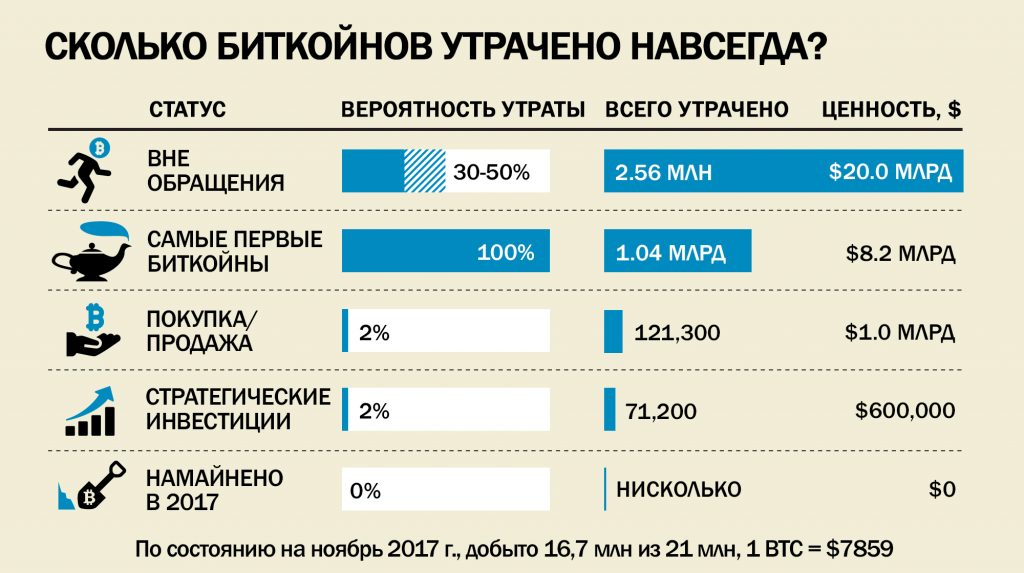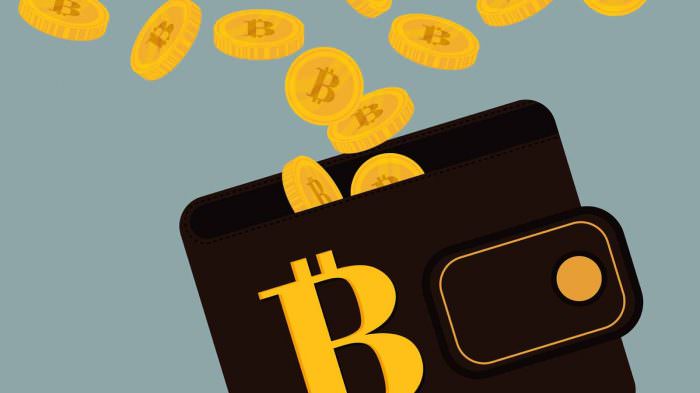Of the 18+ million Bitcoins mined, about 27% are not in circulation, with most likelylost. There are several reasons for this: some of these bitcoins belong to the deceased owners, some belong to Satoshi, but most are lost due to money management errors. And therefore, the value of crypto wallets is growing every day, because with every lost BTC, the value of the remaining bitcoins is growing.
The first crypto wallet designed by Satoshi, and he wasvery simple: it allowed to generate new addresses and send BTC to other people. No special measures were taken to protect or restore private keys, and you could easily enter the wrong address and send coins to the wrong recipient. But those were the early days when people did not think that they were losing something valuable - a maximum of a few cents. But when Bitcoin's value began to grow gradually, holders began to consider it as a commodity that can be traded.

The first exchange was launched in 2010 and was called Bitcoinmarket.com. The following year 2011, Mt.Gox was launched and people started using it instead of a wallet. Hack Mt.Gox(when users lost almost 650,000 BTC)taught us not to store cryptocurrency on exchanges, andThe demand for secure crypto wallets has increased. Over time, many new wallets have emerged, such as Exodus and Jaxx, with support for different currencies and new security options. Today there are many competing wallets for any currency, and in this article we will look at some of them.
What gives us convenience?
In the early days of cryptocurrencies, mostusers were tech savvy. Cryptocurrency was not popular with the masses, but rather was a technology for geeks and developers. Thus, there was no need to create simple tools for Bitcoin users. To satisfy the demand, it was enough to offer any software for storing or sending coins.
However, now that more people are startinguse cryptocurrencies, developers face new challenges: how to simplify a complex system like cryptocurrency? Users don’t care how the cryptocurrency works, just as they don’t care how online banking or YouTube works, they just use it.
For many, the most important rule is that cryptocurrency software is very simple and does not burden the user with its technologies. What are the criteria for a modern wallet?
- Mobile Support– Currently there are more than 5 billion in the worldmobile phone users. The days of home PCs are gone, and the mobile-first paradigm requires a crypto wallet to have a mobile version, preferably an app rather than a responsive website.
- Easy to use interface– Every user must be able tosend cryptocurrency by copying and pasting an address or scanning a QR code. All payment apps today are very user-friendly and allow you to send money in a few clicks/taps, and to remain competitive, a crypto wallet should require no more steps to do so.
- Easy access– Opening the application should also take no more than a few seconds. This may require a short PIN, FaceID or fingerprint.
- Support for many cryptocurrencies– Now this is a standard requirement, although a few years ago it was an exotic option.
In addition to these features, there should be many security options to expect from an application dealing with our money:
- Export private keys to your money– It would seem logical, but not all popular wallets support this.
- Device Encryption– To ensure that no one breaks into the device and finds out your private key.
So, we have defined the rules. What wallets satisfy our needs?
Three candidates
For the purposes of this article, we chose CoinWallet, Jaxx and Freewallet. They are all quite good. But our task is to determine which of them meets the greatest number of criteria for a modern crypto wallet.

First of all, you can compare them by the number of users or installations. Coin Wallet users generated20 millionwallets that have already carried out $120 billion in transactions. Freewallet3 millionusers. At Jaxx -more than 700,000. Assuming that every Coin userWallet generated 2 or 3 wallets, then in terms of the total number of users it is much superior to others. Nevertheless, all these wallets are very popular, so we should choose based on more important indicators.
How are private keys stored?

Freewallet doesn't give you a private key at all.of your cryptocurrency, as it is a custodial service. You send him cryptocurrency, and he promises to store it for you. Jaxx cannot make such promises, since it has already given away $400 million of its users to hackers. This happened in 2017 when hackers were able to gain access to user funds by obtaining a backup seed and, as a result, recovering the access key, despite the PIN being set.
The Seed phrase was not encrypted, so it wasjust connect for 20 seconds to the device via a network connection to steal all the necessary data. As a result, the loophole was closed, but it is not too comforting for those who have lost money.
On the other hand, Coin Wallet has such incidentsthere was no security, and it protects the private key with a seed phrase stored in encrypted form. Coin Wallet uses AES-256 encryption, which has not been cracked in extensive public testing. Additionally, BIP 39 passphrase encryption is used, which(as far as we know)makes phrase theft almost impossible even when gaining access to the device.
How easy is it to use a wallet?

All three wallets allow usersset a 4-digit PIN and use it instead of entering a private key, which is much easier and safer. The interfaces of all three wallets are intuitive, but if we talk about functionality, then Freewallet and Jaxx are much more limited in comparison with Coin Wallet. The problem is the number of cryptocurrencies supported.
Coin Wallet supports more than 20,000 differenttokens - almost everything that has ever been launched on the blockchain. Jaxx and Freewallet support 30-50 popular cryptocurrencies and tokens. This is enough for many, but not for those who like to buy small cap tokens.
In addition, they all allow the exchange of coins andtokens inside the wallet itself. Freewallet uses its own algorithm for this. Jaxx allows instant sharing through Shapeshift. Coin Wallet offers even more: it has partnered with two exchanges, Shapeshift and Changelly, so you can always exchange currency if necessary.
All wallets in question are ad-free. Initially, there was an advertisement from Coin Wallet from Facebook, but when Facebook banned all cryptocurrency ads, the Coin Wallet team removed ads from wallets for iOS, Android and the web, as well as third-party tracking. Now the wallet is completely private, in compliance with all industry security standards.
Coin Wallet has also since accepted someadditional measures to ensure user privacy and security. Coin Wallet never reuses addresses, generating a new one for each transaction, and supports VPN and the Tor browser, allowing transactions to be forwarded via a random IP address. If you want to remain anonymous, then this is the wallet for you.
And the cherry on the cake:in Coin Wallet you can choose a commission fortransaction, which will affect the confirmation time. With the default commission, your transaction will be completed in 30-60 minutes; the maximum guarantees confirmation in the next 0-1 block; and at the minimum you will have to wait 60-90 minutes. The other two wallets do not have such options.
Despite the concerns mentioned, all threethe wallet is not bad and has a loyal user base. Some conservative users may prefer Jaxx because it has the best options for everyday use, it supports most major cryptocurrencies and allows integration with hardware wallets. Freewallet for those who are not able to take care of their own security and prefer custodial solutions that store your funds for you.
And for those users who want to store thousandsTokens in one place, independently keep your private keys and easily exchange your coins, Coin Wallet will definitely like it. All these wallets are free, holistic solutions for storing and managing cryptocurrencies, so the choice is yours.
</p>



